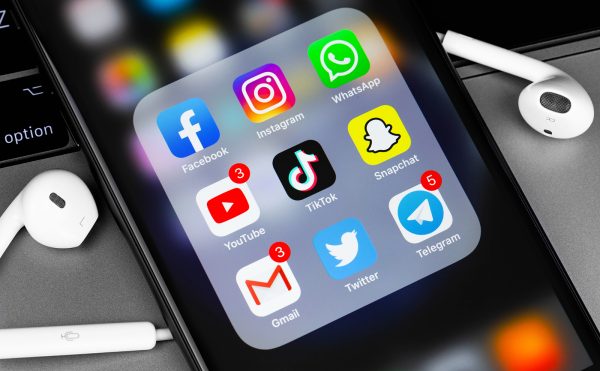In today’s world, the idea of hustle culture is something that the public simply cannot escape from. Social media has played a drastic role through apps like TikTok and Instagram. As one scrolls through their feeds, they’re reminded to get up, work, work, and work until they succeed.
 Amazon is asking reviewers about interactions with merchants on social media apps such as TikTok, YouTube and Instagram. (Dreamstime/TNS) (TNS)
Amazon is asking reviewers about interactions with merchants on social media apps such as TikTok, YouTube and Instagram. (Dreamstime/TNS) (TNS)
They are also reminded that they are staying caught up if they are constantly grinding to the top. But the real question is, is “hustle culture” the healthiest way to go through life? “Rise and grind” and “Sleep in for the weak” are phrases commonly heard and seen on our phones. Their messages are usually shared through influencers, content creators, and even employers at work.
According to an article titled Hustle Culture: The Toxic Impact on Mental Health, “Hustle culture encourages an all-or-nothing mentality that can lead to stress and anxiety at work when professional goals are not met, or deadlines are missed.” This goes to show how it can quickly and negatively make one feel like they are never doing enough and set unrealistic goals for themselves. In addition, according to the organization The American Institute of Stress, “Productivity anxiety” is higher among Gen Z with 30% battling it daily and 58% having it numerous times a week. Meeting deadlines is the leading indicator of having “a good day” (68%), and making mistakes tops the list as a sign of a “bad day” at work (49%).” These statistics highlight how deeply the hustle culture wave has heightened the pressure to perform efficiently.
Hustle culture fails to acknowledge the privileges one person might have more than another. Many of these stories heard from social media include someone who might have already been financially well off, had connections around them, or could even invest their time and resources without a significant risk.
On the other hand, for someone without these privileges, a student struggling to make ends meet with the “hustle” mentality can feel less motivated and not know where to start because of a lack of connections and resources.
Today, it’s easy to forget to take a breather. The obsession with this idea of hustle culture completely ignores that humans need to rest and reflect. It is not always about being productive 24/7 but also about knowing when to take a break and recognizing that growth and grinding aren’t always linear.
Social media also constantly encourages people to look at their worth through the lens of their productivity and successes rather than their well-being, so another good step to take is to limit your time on social media apps, whether it is deleting them off your phone, setting a time when you use it, or muting your notifications because social media platforms have made of fall into this idea of “You just go to work harder to reach your goal.” Lastly, it is essential that when reaching goals, use patience and balance so as not to feel burnt out. Mental health should be prioritized as much as hustle is.
For more information about stress-related issues go to stress.org
